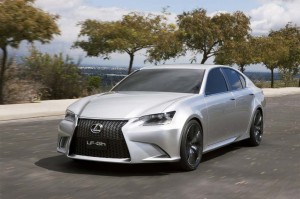Forget the flats, the rattles and wind noise, even the balky transmissions. These days, the biggest headache for a new car buyer is likely to be the voice controlled infotainment system.
The good news is that the latest crop of new cars, trucks and crossovers are “better than ever,” according to the 2012 J.D. Power Initial Quality Study. But while manufacturers have largely overcome the defects and malfunctions that traditionally plagued buyers, motorists are experiencing more issues with the latest in-car technologies, such as voice-controlled navigation and Bluetooth hands-free phones.
The annual IQS asks owners to report on both defects and design-related issues during the first months after they’ve driven their new products home. On average, the 2012 study found an average 102 “problems” for every 100 new vehicles. That’s down from 107 “PP100” in 2011, to use Power-speak.
“This is, without doubt, the best level of quality we’ve ever seen,” noted Dave Sargent, vice president of global automotive at J.D. Power and Associates, or JDPA.
Of the 34 manufacturers included in this year’s IQS, 26 achieved fewer problems than in the 2011 study. Five makers saw their scores worsen while one achieved the same score as last year. Two makers, Fiat and Smart, were not ranked in 2011.
Traditional mechanical problems still matter, and wind noise has consistently been the number one complaint registered by JDPA researchers. But this year, for the first time, problems with audio, entertainment and navigation systems ranked as the single-biggest source of complaints, stressed Sargent, underscoring that, “Technology is really where the battleground of the future is.”
That’s particularly true among the younger buyers, those under 35 twice as likely to complain about tech issues as older buyers — perhaps, said Sargent, because they are more tech savvy and know how well things can work when designed right in the first place.
Most makers have been suffering from the challenges of adding new technology that remains easy to use “even at 80 mph,” the JDPA executive said. But some have been particularly hard hit – notably Ford Motor Co., which has seen its scores in the IQS tumble in recent years, in large part due to customer criticism of the voice and touch-operated MyFordTouch and MyLincolnTouch technologies.
Ford, however, also was hammered by complaints about a troublesome transmission in its new Focus model.
Expecting a mediocre showing, Ford held a news conference ahead of the IQS release, the maker acknowledging it has run into problems on both fronts but noted it is updating both the transmission and the touch-based infotainment system. “The dramatic improvement we’re expecting will come in the third quarter,” promised Bennie Fowler, Ford’s global quality chief.
For his part, Power’s Sargent said he expected the maker to show an improvement in the 2013 Initial Quality Study.
Lexus, which was the highest-ranked brand, had just 73 PP100, or barely seven problems for every 10 cars it sold for 2012. Porsche and Jaguar were close behind at 75 problems per 100.
Significantly, Jaguar appeared to have gotten launch issues with its flagship XJ model resolved, allowing it to leap from 20th in the 2011 IQS to a tie for second this year.
One of the significant facts of the IQS is that even the worst vehicles now have relatively few problems compared to what might have been expected by motorists just a decade or two ago. Bottom-ranked Fiat and Smart had 151 PP100, or an average of 1.5 problems per vehicle.
Japanese makers in general topped the list, with seven of the 15 brands scoring above that industry average. Detroit had four brands in that group, led by Cadillac with a score of 80 PP100. European makers had the remaining four above-average brands.
Considering the increasing quality of even the lowest-ranked models, does the IQS matter anymore? That’s an intriguing question and one that Sargent didn’t dismiss outright. Next month, Power will release another survey, dubbed APEAL, that measures Things-Gone-Right, in industry lingo, rather than the Things-Gone-Wrong covered by IQS.
Notably, many of the same makers who score poorly in the Initial Quality Study do much better in APEAL – Ford, for example, winning owner praise for the tricks its infotainment system can perform.
But that doesn’t mean a maker should ignore problems that can alienate buyers who initially were excited about purchasing the latest technologies, he stressed.
Historically, brands that land in the upper quartile of the IQS have a significantly higher loyalty rate – measured by repeat buyers – than those who have more quality problems. And Power data suggest that quality and reliability is still the single most important factor in determining what vehicle to buy for 59% of American motorists.
But there’s no question, Sargent stressed, that all makers appear to be “listening to the voice of the consumer and translating that into improved products. In what he called the “democratization of quality,” 14 different brands took top honors in at least one of the 21 different vehicle segments in this year’s IQS. Toyota and its Lexus luxury brand collectively took five, while General Motors landed four segment wins – one for each of its four U.S. brands. Ford took three, Nissan and its Infiniti brand two. The other segment wins were racked up by Honda, Kia, Mazda, Volvo and Porsche.
In fact, the German sports car maker’s 911 model was not only tops in the sporty car segment but had the single-best score ever recorded in the IQS, just 44 PP100.
Separately, JDPA also handed out awards for the highest-quality plants. Those trophies were largely collected by the Japanese, including Honda which achieved an overall-best Platinum ranking for the Suzuka 3 assembly line in Japan, which produces the maker’s CR-Z crossover and Fit subcompact models.


